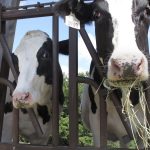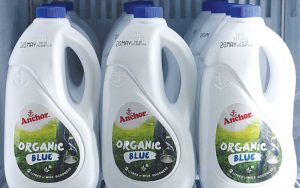
Organics Aotearoa New Zealand (OANZ) has published its 2020 market report, measuring the sector’s performance both home and abroad.
Overall, the signals are positive for organic producers with the entire organic food and beverage market experiencing an increase of $123 million in sales since the $600m reported in 2017.
The sector’s average annual 6.4% growth rate has been driven by a 23% increase in domestic sales and an 18% export earnings increase.
Organics Aotearoa New Zealand (OANZ) chair Chris Morrison says the impact of covid-19 has largely been positive on the organics market, with consumers putting greater focus upon foods from a pure source that will boost immunity and health.
The big market mover in the $420m-a-year organic export sector is China, now comprising 20% of total export earnings, first equal to the United States.
As with all markets, the demand in China has been driven largely by a surge in demand for organic dairy products, which as a category have increased at a rate of 16% a year, compared to 11% per annum growth in conventional dairy products.
“Dairy and wine are the big winners in the organic sector right now,” Morrison said.
“In China organic products are seen as particularly safe foods, with middle class parents looking for products like baby food and infant formula for the gold-plated security organics offer.”
NZ’s organic dairy horsepower has been significantly boosted by Fonterra’s re-entry into the market, helping make it the largest organic food and beverage category.
The sector’s premium above conventional supply peaked last year when Fonterra paid $10.19/kg milksolids, against the $7.19/kg conventional payment.
Fonterra now has 95 farms certified organic, with 25 under the three-year conversion process, and the vast majority are in the North Island.
Pamu is one of the largest suppliers, with eight farms organic and six in the conversion phase.
The report notes the greatest constraint to organic dairying is difficulties in sourcing organic supplements, a lack of veterinarians capable of specialising in organic treatments, and lack of run-off land for youngstock.
Wine sales, particularly to the United States, totalled $65m in 2020, experiencing an annual increase of 12%, over double that experienced by conventional wine.
“Sauvignon Blanc in particular is proving very popular in the US and Canada,” he said.
Ten percent of NZ’s wineries are now certified organic, with most production coming out of the South Island and Central Otago is proving to be an artisanal hub for organic wine production.
Estimates are the market will continue to grow at a rate of 10% a year from now until 2027, with strong sales anticipated relatively evenly from all overseas markets.
In the horticultural sector, land committed to organic horticulture has fallen slightly to 19,000ha, but fruit and vegetables sales have lifted 7% from 2017.
Morrison says this sector is facing greater consolidation, with big players like Zespri and Bostock dominating sector sales at an international level, while smaller producers are filling niches in the local farmer market-domestic distribution level.
In the meantime, organic red meat production remains challenged by the logistics of regular supplies to certified plants in economic volumes, and livestock numbers have dropped by 10,000 head to 55,000 since 2017.
“There are challenges there, and the industry is looking at ways to consolidate – processing has a level of complexity,” he said.
Morrison says as pressure goes on farmers to produce higher returns with a lighter footprint, organics is proving it can deliver.
Farms like Pamu’s Taupo dairy units are returning a third lower gas emissions per hectare compared to conventional farms, and 50% higher earnings.

























